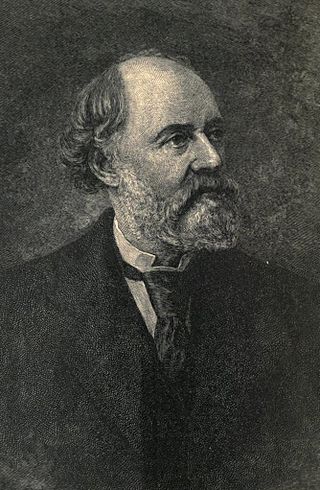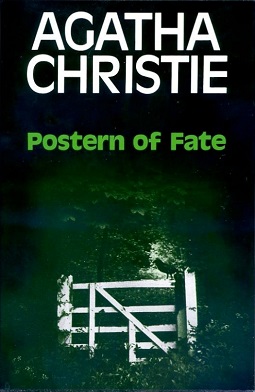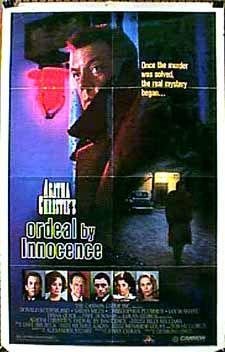
Dame Agatha Mary Clarissa Christie, Lady Mallowan, was an English author known for her 66 detective novels and 14 short story collections, particularly those revolving around fictional detectives Hercule Poirot and Miss Marple. She also wrote the world's longest-running play, the murder mystery The Mousetrap, which has been performed in the West End of London since 1952. A writer during the "Golden Age of Detective Fiction", Christie has been called the "Queen of Crime"—a nickname now trademarked by her estate—or the "Queen of Mystery". She also wrote six novels under the pseudonym Mary Westmacott. In 1971, she was made a Dame (DBE) by Queen Elizabeth II for her contributions to literature. She is the best-selling fiction writer of all time, her novels having sold more than two billion copies.
Miss Jane Marple is a fictional character in Agatha Christie's crime novels and short stories. Miss Marple lives in the village of St Mary Mead and acts as an amateur consulting detective. Often characterised as an elderly spinster, she is one of Christie's best-known characters and has been portrayed numerous times on screen. Her first appearance was in a short story published in The Royal Magazine in December 1927, "The Tuesday Night Club", which later became the first chapter of The Thirteen Problems (1932). Her first appearance in a full-length novel was in The Murder at the Vicarage in 1930, and her last appearance was in Sleeping Murder in 1976.
This article contains information about the literary events and publications of 1853.

Charles Reade was a British novelist and dramatist, best known for The Cloister and the Hearth.
Edisonade is a genre of fictional stories about a brilliant young inventor and his inventions, many of which would now be classified as science fiction. This subgenre started in the Victorian and Edwardian eras and had its apex of popularity during the late 19th and early 20th centuries. Other related terms for fiction of this type include scientific romances. The term was introduced in 1993 by John Clute in his and Peter Nicholls' The Encyclopedia of Science Fiction. It is an eponym, named after famous inventor Thomas Edison, formed in the same way the term "Robinsonade" was formed from Robinson Crusoe.

Postern of Fate is a work of detective fiction by Agatha Christie that was first published in the UK by the Collins Crime Club in October 1973 and in the US by Dodd, Mead and Company later in the same year. The UK edition retailed at £2.00 and the US edition at $6.95.
Frank Reade was the protagonist of a series of dime novels published primarily for boys. The first novel, Frank Reade and His Steam Man of the Plains, an imitation of Edward Ellis's The Steam Man of the Prairies (1868), was written by Harry Enton and serialized in the Frank Tousey juvenile magazine Boys of New York, February 28 through April 24, 1876. The four Frank Reade stories concerned adventures with the character's inventions, various robot-like mechanisms powered by steam.

Agatha Christie's Marple is a British ITV television programme loosely based on books and short stories by British crime novelist Agatha Christie. The title character was played by Geraldine McEwan from the first to the third series, until her retirement from the role, and by Julia McKenzie from the fourth series onwards. Unlike the counterpart TV series Agatha Christie's Poirot, the show took many liberties with Christie’s works, most notably adding Miss Marple’s character to the adaptations of novels in which she never appeared. Following the conclusion of the sixth series, the BBC acquired the rights for the production of Agatha Christie adaptations, suggesting that ITV would be unable to make a seventh series of Marple.
The Railway Station Man is a 1992 British drama film directed by Michael Whyte, and starring Julie Christie, Donald Sutherland and John Lynch. It was based on the 1984 novel of the same name by Irish writer Jennifer Johnston. It was filmed on location in Glencolmcille, County Donegal, Ireland.

Home and Away: Secrets and the City is an exclusive-to-video and DVD special of Australia's most popular soap opera Home and Away. In 2002, it was only released on video and a year later it received a DVD release. It is hosted by Home and Away star Tammin Sursok — in character as Dani Sutherland, not as herself — and contains three episodes, two of which were aired on TV: Shattered Hearts and Broken Dreams, from the fifteenth season of Home and Away, while the third episode, Secrets and the City will never be aired on TV; it is only to be seen on the video and DVD.

Ordeal by Innocence is a 1984 mystery film directed by Desmond Davis. It stars Donald Sutherland, Faye Dunaway, Christopher Plummer and Sarah Miles. It is based on the 1958 Agatha Christie novel Ordeal by Innocence.
Christie Johnstone may refer to:
Christie Johnstone is a 1921 British silent romance film directed by Norman McDonald and starring Gertrude McCoy, Stewart Rome and Clive Brook. It was adapted from the 1853 novel Christie Johnstone by Charles Reade. It was made at Broadwest's Walthamstow Studios.

Griffith Gaunt, or Jealousy is an 1866 sensation novel by Charles Reade. A best-selling book in its day, it was thought by Reade to be his best novel, but critics and posterity have generally preferred The Cloister and the Hearth (1861).

Ryan Christie is a Scottish professional footballer who plays as a midfielder or winger for Premier League club AFC Bournemouth and the Scotland national team.
David Macbeth Sutherland was a Scottish artist mainly known for his landscapes and portraits paintings and for his long tenure as the Director of Gray's School of Art in Aberdeen.

Masks and Faces is a British historical comedy play written by Charles Reade and Tom Taylor which was first performed in 1852. It features the Irish actress Peg Woffington (1720–1760) as a major character. It proved popular, earning the writers £150. The following year, to capitalize on the play's success Reade wrote a novel Peg Woffington which was also a major hit.

Peg Woffington is an 1853 novel by the British author Charles Reade. It was inspired by the popular stage play Masks and Faces which he had co-written with Tom Taylor the previous year. Reade portrayed the London success of the Irish actress Peg Woffington (1720-1760) and featured other prominent figures of the days such as David Garrick.

Hard Cash, A Matter-of-Fact Romance is an 1863 novel by Charles Reade. The novel is about the poor treatment of patients in insane asylums and was part of Reade's drive to reform and improve those institutions.

In March 2020, during that year's election campaign for President of the United States, Tara Reade alleged that Democratic nominee Joe Biden sexually assaulted her in 1993 in a Capitol Hill office building when she was a staff assistant in his office. Biden denied Reade's allegation.












